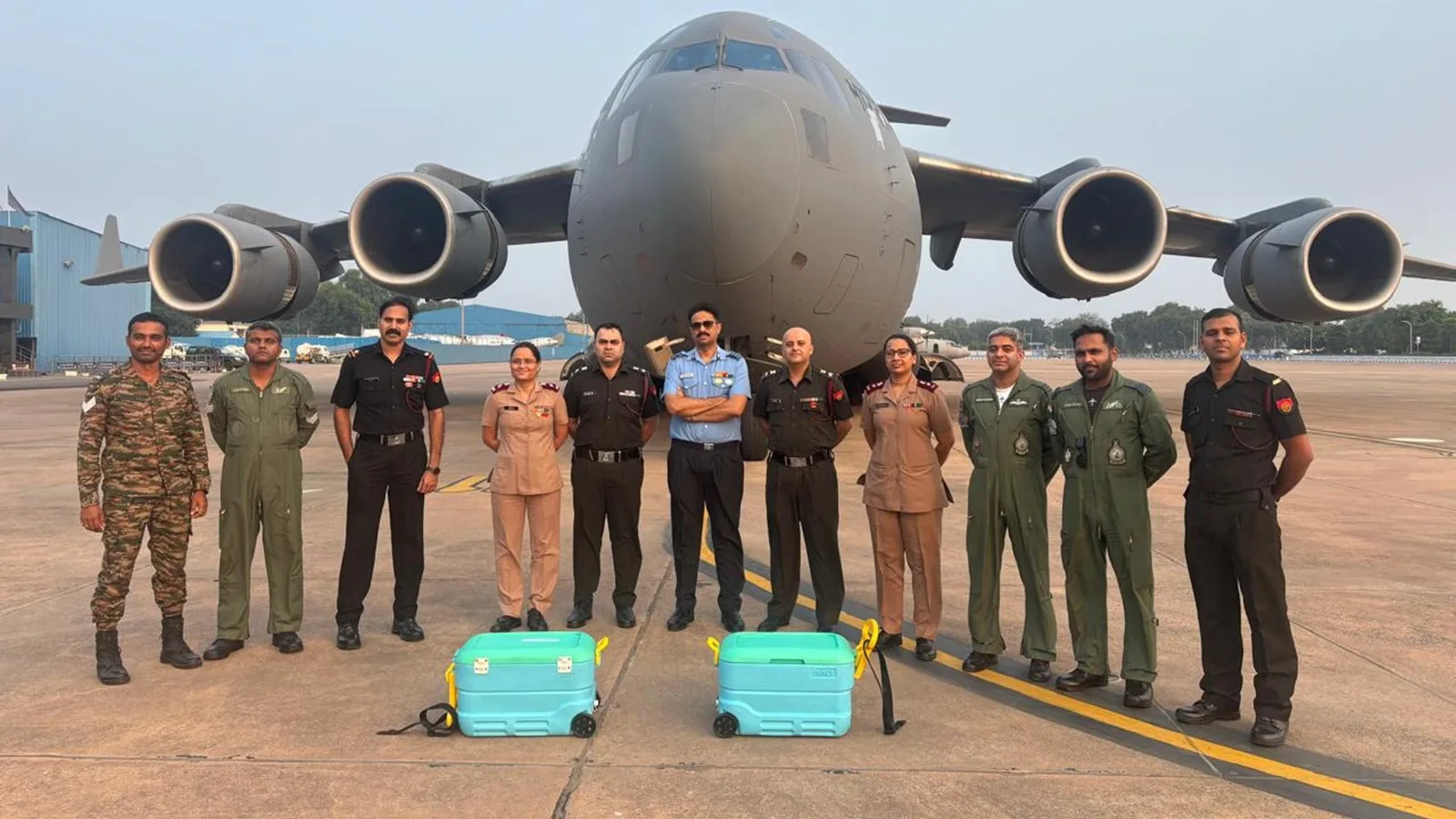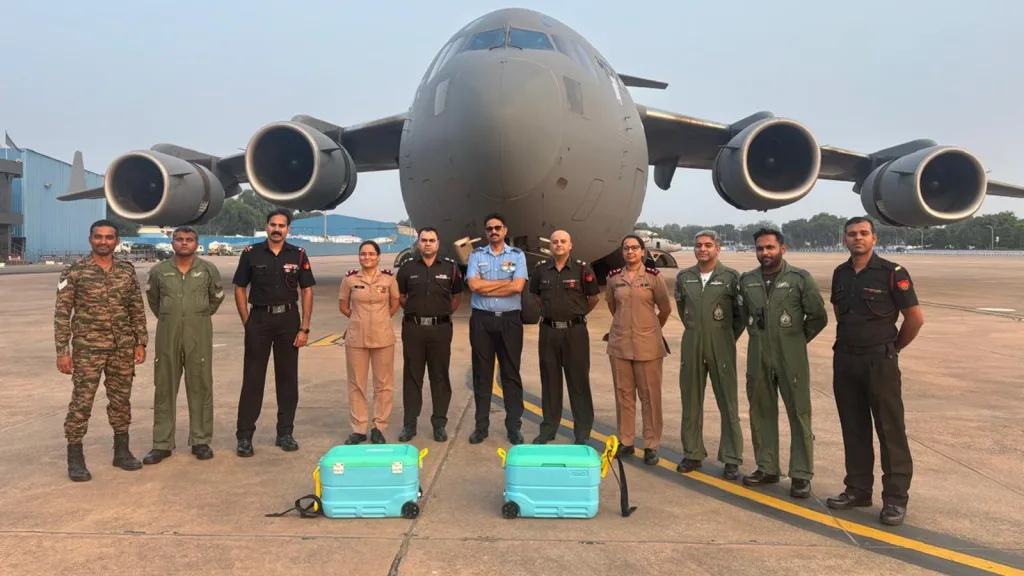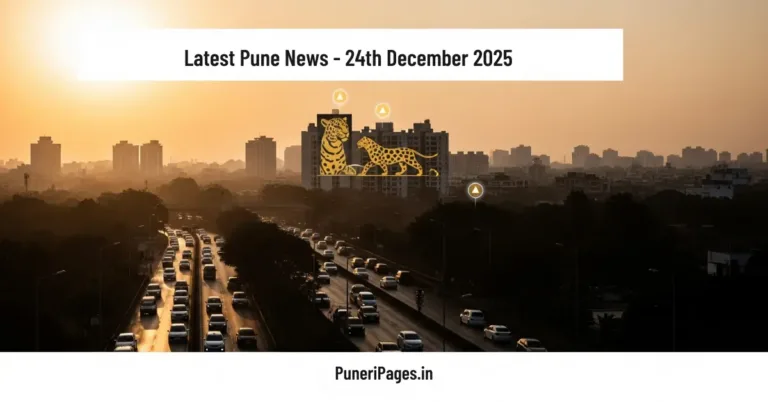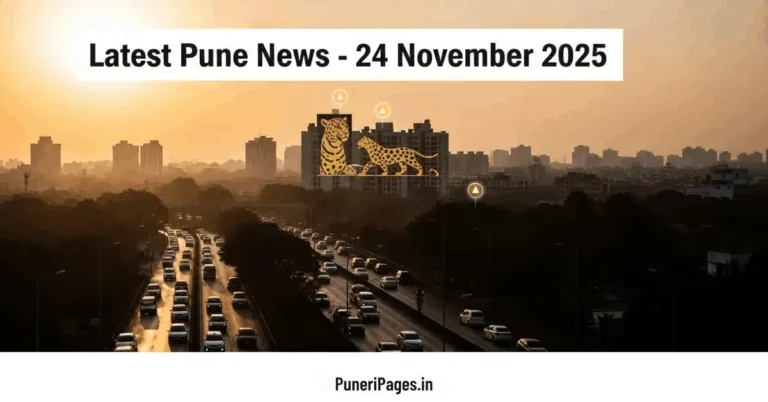
In an extraordinary act of coordination, compassion, and courage, the Indian Air Force (IAF) conducted a life-saving mission by airlifting harvested organs from Pune to Delhi in record time, enabling the successful transplantation of three critically ill patients.

A Race Against Time
The mission was launched on the night of June 20, 2024, when doctors at Pune’s Ruby Hall Clinic declared a 41-year-old man brain dead. His family, in an inspiring gesture of humanity, agreed to donate his liver, kidneys, and heart valves. These vital organs had to be delivered to Delhi and other locations for immediate transplant into recipients awaiting life-saving procedures.
Given the urgency and geographical distance, the IAF was contacted. Within hours, a C-130J Super Hercules aircraft was deployed from the Air Force Station in Pune to facilitate a green corridor flight — a specialized operation ensuring minimal transit time and maximum preservation of organ viability.
Seamless Coordination and Execution
The organs were carefully packed by medical experts at Ruby Hall and handed over to the IAF medical team. They were then airlifted from Pune to the Indira Gandhi International Airport in New Delhi, with the entire operation completed in just over two hours.
Simultaneously, local authorities in Pune, Delhi, and cities en route coordinated road traffic management and clearances to ensure there were no delays during the transfer. It was a prime example of inter-agency collaboration — with doctors, police, airport officials, and the Air Force working in unison.
Lives Saved
Thanks to this meticulously executed operation, three critically ill patients in Delhi received transplants — two kidney recipients and one liver recipient. All surgeries were successful, and the patients are now under observation, with doctors reporting stable conditions.
This was not the first time the IAF had come to the rescue in such scenarios. The Air Force has previously been instrumental in similar green corridor operations across the country, highlighting their pivotal role in civilian humanitarian efforts beyond national defense.
Organ Donation in India: Still a Long Way to Go
India still struggles with low organ donation rates. According to health experts, the country sees less than one donor per million population — significantly below global averages. Awareness, education, and timely infrastructure support, like the one demonstrated in this mission, are key to bridging the gap.
A Message of Hope and Solidarity
This heartening episode is a testament to what is possible when empathy, efficiency, and expertise converge. The selfless act of the donor’s family, the swift mobilization by the IAF, and the tireless work of the transplant teams prove that humanity and heroism still thrive — especially when lives are on the line.
FAQs
Q1: What is a green corridor?
A: A green corridor is a special route created for fast transportation of organs, where traffic signals are controlled to allow smooth passage.
Q2: Which aircraft was used in the Pune-Delhi organ airlift?
A: The IAF used a C-130J Super Hercules aircraft for the airlift mission.
Q3: Who coordinated the organ donation?
A: Doctors and transplant coordinators at Ruby Hall Clinic, Pune, in coordination with the IAF and Delhi hospitals.
Q4: How many lives were saved in this operation?
A: Three lives were saved — two kidney transplants and one liver transplant were successfully performed.
Q5: How long did the airlift take?
A: The entire operation was completed in just over two hours, thanks to the dedicated green corridor.
Q6: Is this the first time the IAF has done such a mission?
A: No, the IAF has been involved in several similar humanitarian missions across the country.
Q7: Can civilians request IAF help in organ transport?
A: Requests usually come via hospital coordinators and are evaluated by government and IAF authorities based on urgency and logistics.
Q8: Why is organ donation important in India?
A: India has a large number of patients awaiting organ transplants, but a very low donation rate. Awareness and family consent are critical.
Q9: How can one register as an organ donor?
A: Individuals can pledge to donate organs via national portals like NOTTO (National Organ & Tissue Transplant Organisation).
Q10: What are the legal procedures for organ donation?
A: Organ donation is governed by the Transplantation of Human Organs Act, 1994, which requires proper consent and medical certification.






